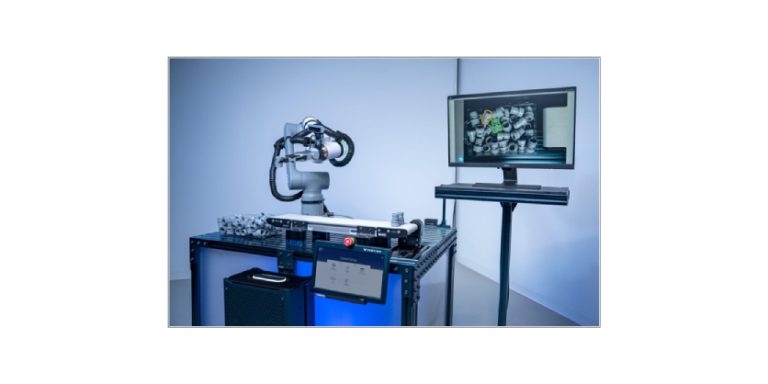Exporting Machinery to India: Only with BIS Certificate and a Local Representative – India Sets Safety Standards
November 17, 2025

As the world’s fastest growing economy, India is establishing a legal framework for Machinery Safety – and therefore for the protection of human and machine. The “Machinery and Electrical Equipment Safety (Omnibus Technical Regulation) Order, 2024”, approved by the Ministry of Heavy Industries, is expected to come into force from 1 September 2026. It describes all the requirements for exporting or operating machinery within the country.
In future, in accordance with the “Machinery and Electrical Equipment Safety (Omnibus Technical Regulation) Order, 2024”, machine manufacturers and exporters must ensure that only machineries with valid certification from the BIS (Bureau of Indian Standards) may be imported into India. The conformity mark “BIS/CRS Standard Mark” ensures the quality, safety, and reliability of products in accordance with Indian Standards (IS). What’s more, the “Electrical Equipment (Quality Control) Order, 2020” expands the list of electrical products requiring certification.
India regulates Machinery Safety: who is affected
The new Indian Machinery Safety regulations affect manufacturers and exporters. Distributors and importers are indirectly affected by mandatory BIS certification, as they may only sell certified products, but cannot apply for certification themselves.
The regulation applies to numerous types of machines – from pumps and packaging machines through to electrical control components. Safety-related assemblies are also included. Exceptions apply only to machines that are intended exclusively for export from India or are used temporarily, on construction sites for example.
Export to India? Only with an authorised representative
In future, exports to India will require an authorised representative, who is established in India. They will handle communication with the Indian authorities, as well as the submission and administration of the certification documents. They are also responsible for compliance with the regulations.
As an “Ambassador for Safety”, the automation expert Pilz has been bringing Training Courses on Plant and Machinery Safety from Pilz knowledge to the world for decades. The company supports machine builders and users worldwide with the Safety of their plant and machinery. With its Indian subsidiary, Pilz can help companies meet the requirements and export to India. Employees from Pilz India are members of the BIS committee and actively contribute to Indian standards.
More Information
Laws and standards – knowledge related to machinery safety
Related Story
Training Courses on Plant and Machinery Safety from Pilz
Plant safety is vitally important for the safe operation of technical plants. As a machine manufacturer or operator you are legally obliged to ensure the safety of plant, machinery and devices. Training courses teaches you to identify risks and avoid accidents. Further training for safety officers and employees is the key to success here. With this knowledge you can operate plants more efficiently and safely carry out maintenance work. By integrating plant safety into your company you are demonstrating responsibility and increasing the confidence of authorities, employees and the public. Plant safety also contributes towards the prevention of environmental pollution and damage.





